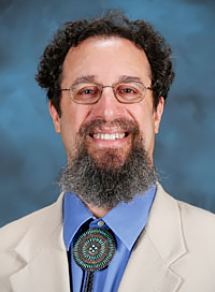Seminars
Dr. Lawrence M. Anovitz
Chemical Sciences Division
Oak Ridge National Laboratory
Experiments in Chemomechanics

ABSTRACT: Chemomechanical processes are those in which there is a feedback (positive or negative) between geochemical processes/variables such as precipitation/dissolution, mineral replacement reaction, pressure solution, and grain boundary chemistry, and mechanical and geophysical processes and variables such as weathering rates, crystallization pressure, Young’s and Shear moduli, fracture, S and P wave velocities and internal friction. For instance, overall rates of rock dissolution may be directly affected by internal crystallization pressures caused by growth of new mineral phases along grain boundaries, leading to increases in rock permeability. This talk will present results from several ongoing projects at different levels of completeness illustrating some aspects of these processes, including oxidative weathering of granite, radiation-induced granular expansion, recrystallization in dry and steam environments, and crystallization pressures. Ongoing work is experimental/analytical in nature but could potentially benefit from a collaborative computational effort. It is hoped that this presentation will lead to further discussions of this possibility.
BIOGRAPHY: Lawrence Anovitz received undergraduate degrees in Geology and Anthropology from the University of Arizona in 1980, and Masters and Ph.D. degrees in Geology (Metamorphic Petrology/High Temperature Geochemistry) from the University of Michigan in 1982 and 1987, respectively. He joined the Geochemistry group at ORNL in 1994 and holds positions as Adjunct Associate Professor in the Geology Department and Associate Professor in the Bredesen Center at the University of Tennessee. His current work involves experimental analysis of changes in multiscale porosity as a function of geological and anthropogenic processes, and the properties of confined and ultraconfined fluids, often investigated using a variety of neutron scattering techniques.